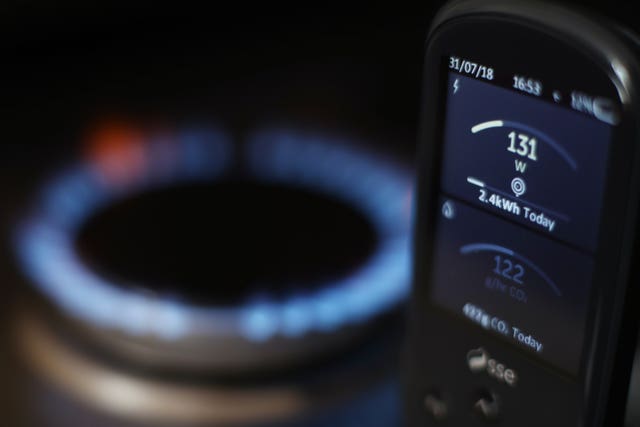
The standing charges on energy bills should be abolished or reduced, bosses in the sector have said.
The boss of British Gas owner Centrica said on Friday that the system penalises those who try to keep their energy bills under control by reducing how much gas and electricity they use.
The standing charge is a fixed amount that people pay on their energy bill and does not change based on usage.
It is used to pay for many things, including the upkeep of the electricity and gas grids.
However, its critics say it is an unfair system which gives people less control over their energy bills.
It could mean a household which only uses gas for heating their home, and not for hot water or cooking, will still be charged during the summer months when their heating is off.
Although such homes are rare, it could leave people with charges they do not understand and can do nothing about.

“The standing charge hits those who are careful about their energy use hardest – and these are often people from low-income households and prepayment meter customers,” Centrica chief executive Chris O’Shea told the Sun newspaper on Friday.
“I know from conversations with prepayment customers that the standing charge can see them unknowingly build up debts over the warmer summer months.”
He also reiterated his support for a so-called social tariff, which would allow poorer households to get special discounted deals on their energy bills.
Greg Jackson, chief executive of British Gas’s rival Octopus Energy, also aimed criticism at the standing charge on Friday.
“Standing charges are too high,” Mr Jackson wrote on Twitter.
“Octopus charges 4-5% below the price cap, but it’s almost impossible to go lower because of regulation.
“Costs should be moved on to unit rates with extra support for low income/disabled customers.”
This would mean that instead of a standing charge, the cost for every unit of gas or electricity that someone uses would increase. That would give people more control over their bills.
If this happened it would benefit households who use less energy, but it would be bad for those who use more.
This could mean some poorer people, such as those with large families or in poorly insulated homes who need to use more energy, would see their bills rise.


Why are you making commenting on The National only available to subscribers?
We know there are thousands of National readers who want to debate, argue and go back and forth in the comments section of our stories. We’ve got the most informed readers in Scotland, asking each other the big questions about the future of our country.
Unfortunately, though, these important debates are being spoiled by a vocal minority of trolls who aren’t really interested in the issues, try to derail the conversations, register under fake names, and post vile abuse.
So that’s why we’ve decided to make the ability to comment only available to our paying subscribers. That way, all the trolls who post abuse on our website will have to pay if they want to join the debate – and risk a permanent ban from the account that they subscribe with.
The conversation will go back to what it should be about – people who care passionately about the issues, but disagree constructively on what we should do about them. Let’s get that debate started!
Callum Baird, Editor of The National
Comments: Our rules
We want our comments to be a lively and valuable part of our community - a place where readers can debate and engage with the most important local issues. The ability to comment on our stories is a privilege, not a right, however, and that privilege may be withdrawn if it is abused or misused.
Please report any comments that break our rules.
Read the rules hereLast Updated:
Report this comment Cancel